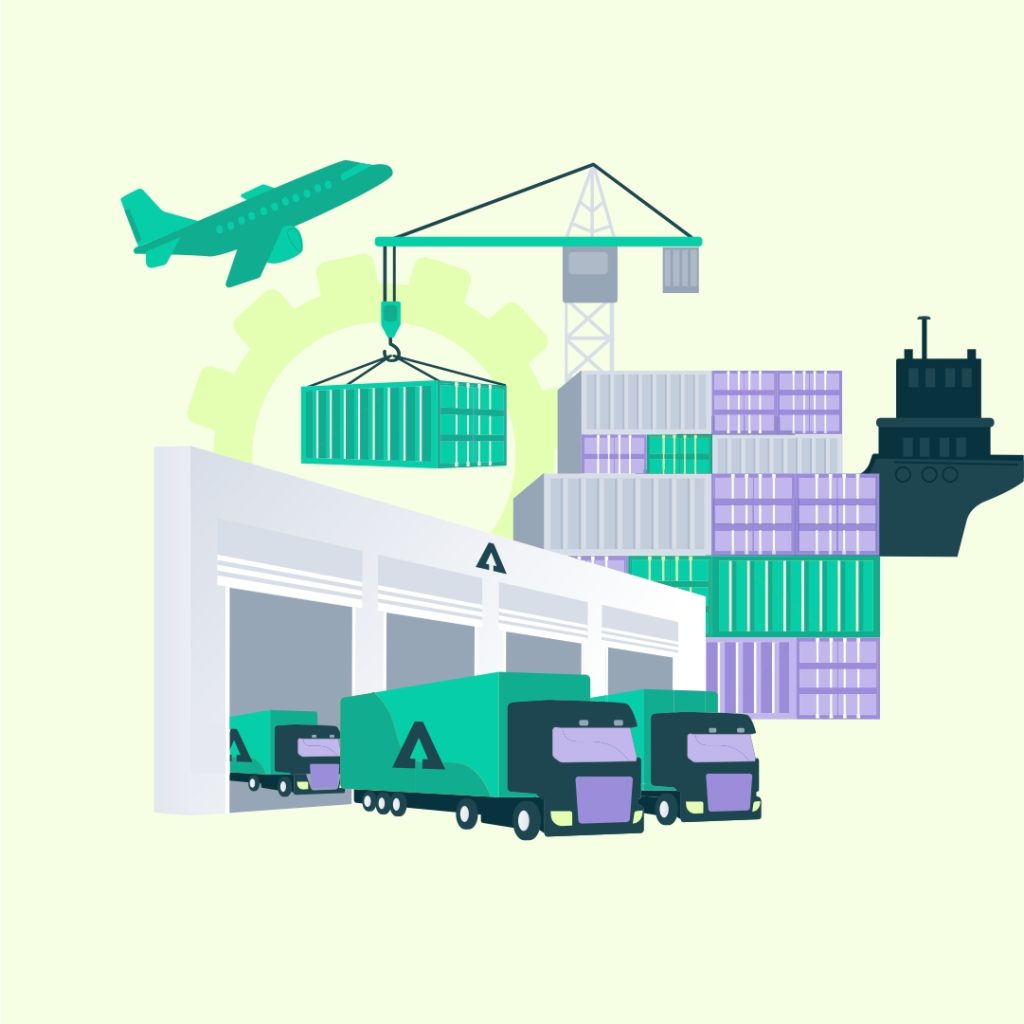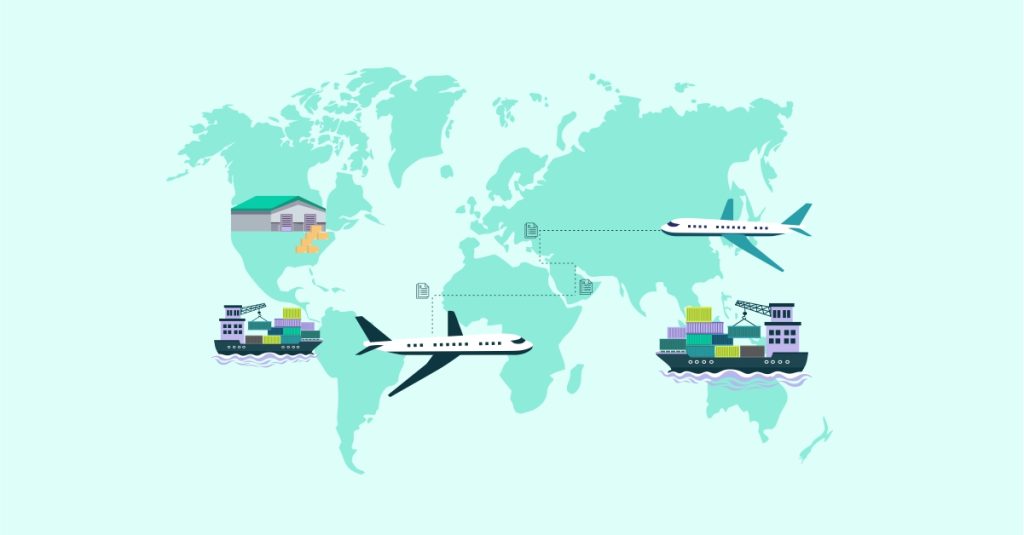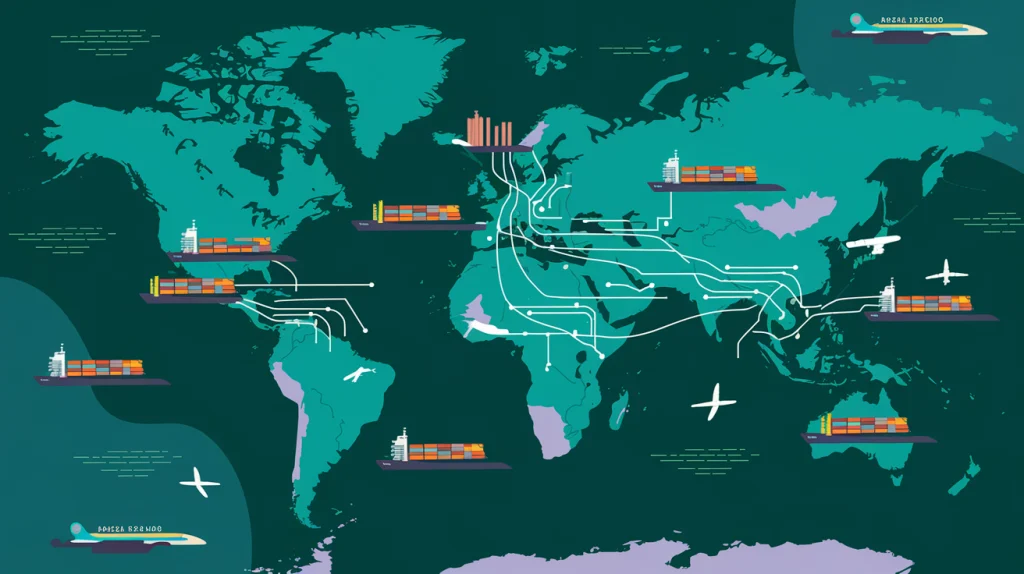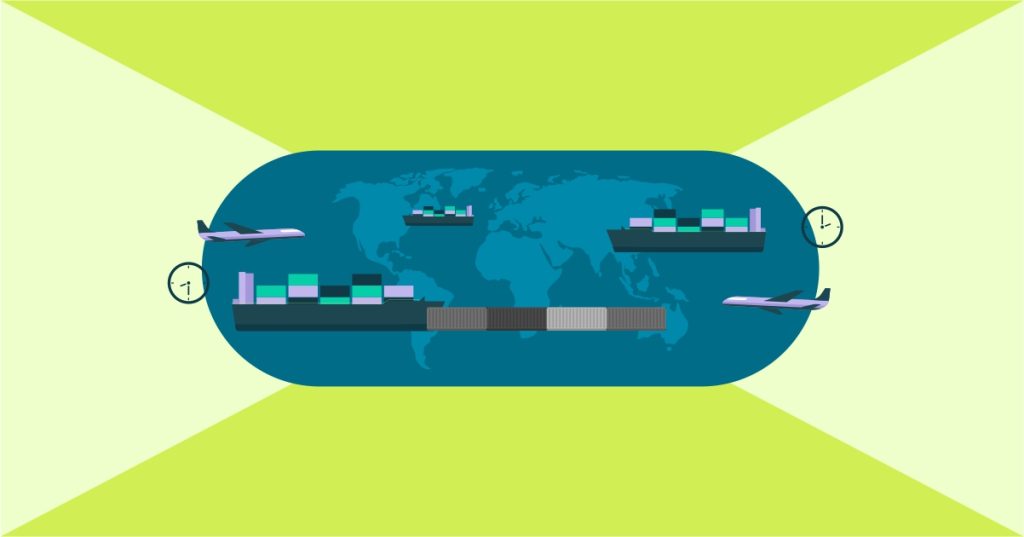How B2B Businesses Can Master Freight Challenges: Riding the Waves of Disruption
The global supply chain is a complex organism, constantly vulnerable to unexpected shocks. For B2B businesses, freight disruptions aren’t just inconveniences – they’re existential threats. A single delayed shipment can trigger a domino effect, idling production lines, overflowing warehouses, and eroding hard-won customer trust. The cost of inaction? Lost revenue, damaged relationships, and a weakened competitive edge.
This isn’t about weathering the storm; it’s about learning to surf. This article equips you with the strategies and tools to not merely react to freight disruptions but to anticipate, mitigate, and even leverage them to your advantage. We’ll explore proactive planning, cutting-edge technology, and the power of strategic partnerships, transforming potential crises into opportunities for growth.
Key Takeaways
- Proactive Contingency Planning: Develop flexible strategies with alternative routes, backup suppliers, and diverse carriers. Think of it as having a “Plan B” (and “C” and “D”) ready to go. Tools like supply chain mapping software can help visualize potential vulnerabilities and identify backup options.
- Real-Time Visibility: Implement freight forwarding platforms with real-time tracking and automated alerts. This empowers you to identify disruptions early and respond swiftly.
- Strategic Partnerships: Cultivate strong relationships with multiple logistics providers. These partnerships can provide priority service and flexible solutions during times of stress. Look for providers with a proven track record of reliability and a willingness to collaborate.
- Empowered Teams: Invest in training for your internal teams, focusing on crisis management and clear response protocols. Your team is your first line of defense; equip them with the knowledge and tools to navigate disruptions effectively.
- Diversification is Key: Spread your risk by diversifying transportation routes, suppliers, and even warehouse locations. This reduces your dependence on single points of failure and enhances your ability to adapt to changing circumstances.

The B2B Disruption Dilemma: Why the Stakes are Higher
Freight disruptions hit B2B businesses harder than most. Larger shipment volumes, stricter contractual obligations, and the intricate web of interdependencies with other businesses amplify the impact of even minor delays. The ripple effects can be devastating.
Anatomy of a Disruption: Causes and Impact
B2B freight disruptions arise from a multitude of sources, ranging from natural disasters and geopolitical instability to port congestion and cybersecurity breaches. The consequences can be far-reaching:
- Financial Fallout: Lost revenue, increased operational costs, and potential penalties for missed deadlines.
- Reputational Damage: Eroded customer trust and strained relationships with key partners.
- Operational Gridlock: Halted production lines, inventory imbalances, and logistical bottlenecks.
Real-World Examples: The Impact of Major Disruptions
Real-world examples highlight just how vulnerable even the most sophisticated supply chains can be. Consider the Suez Canal blockage in 2021, which disrupted global trade for several weeks, causing significant delays and financial losses for countless businesses. Similarly, the ongoing semiconductor chip shortage has had widespread implications, affecting industries from automotive to consumer electronics. These disruptions serve as stark reminders of how critical it is to build resilience into supply chains. Companies like Toyota responded by stockpiling essential components, while others, like Dell, diversified their chip suppliers to reduce dependency on a single source.
Learning from the Past: Industry Insights for Navigating Disruptions
To build resilience against freight disruptions, it’s crucial to learn from past experiences and understand what has worked well for others. Here are key lessons and tactics that businesses have successfully used to navigate disruptions:
Robust Tracking Systems: Use tracking systems to monitor shipments in real-time, providing early alerts on delays and enabling proactive intervention.
Proactive Communication with Partners: Maintain regular communication with logistics partners to ensure all stakeholders are informed, reducing misunderstandings during disruptions.
Route Diversification: Diversify shipping routes and leverage alternative carriers to maintain delivery schedules when primary routes face disruptions.
Agility in Response: Quickly adapt by employing flexible solutions to address issues as they arise, ensuring minimal impact on operations.
Comprehensive Contingency Planning: Prepare for disruptions by having detailed contingency plans, which include backup routes, suppliers, and transport modes to minimize negative impacts.
Clear Communication Channels: Ensure transparent communication with stakeholders, including suppliers and customers, to build trust and keep everyone informed during challenging times.
Building Your Fortress: Strategies for Disruption Mitigation
Safeguarding your business demands a proactive approach, built on three essential pillars: anticipation of disruptions, defining comprehensive mitigation strategies, and continuous adaptation. Each of these pillars forms the backbone of a resilient supply chain, and together they create a holistic defense against potential challenges.
- Anticipation of Disruptions: This pillar is about predicting where issues may arise before they occur. Leveraging historical data, industry trends, and technology such as AI-based forecasting tools can help businesses foresee potential disruptions. By understanding these signals, you can proactively identify vulnerabilities and mitigate them ahead of time.
- Formulation of Comprehensive Mitigation Strategies: Once potential disruptions are anticipated, the next step is to create robust mitigation strategies. This means developing contingency plans, diversifying suppliers and transport routes, and maintaining a flexible approach to logistics management. Comprehensive strategies ensure that when disruptions do happen, their impact is minimized, keeping operations stable.
- Continuous Adaptation: The final pillar is about evolving with the changing landscape. Freight disruptions are dynamic, and a strategy that works today may be obsolete tomorrow. Continuous adaptation involves learning from disruptions, analyzing what worked, and implementing process improvements to stay resilient. This ongoing refinement ensures your business stays ahead of the curve.
These three pillars—anticipation, mitigation, and adaptation—lay the foundation for building and maintaining a resilient supply chain.
Contingency Planning: Your Safety Net
A well-defined contingency plan is your insurance policy against the unexpected. This plan should outline alternative shipping methods, backup suppliers, and flexible delivery schedules.
Supplier diversification involves identifying and vetting alternative suppliers for critical materials and components. By establishing relationships with multiple suppliers, businesses can reduce their dependency on a single source, thereby enhancing resilience against disruptions.
Route flexibility involves mapping out alternative transportation routes and establishing relationships with multiple carriers. By planning for diverse transportation options, businesses can ensure they have backup routes available, reducing the risks associated with relying on a single route or carrier.
Communication protocols involve developing clear and effective communication plans to ensure that customers and partners are kept informed throughout disruptions. Establishing open channels of communication helps manage expectations, builds trust, and provides transparency, minimizing confusion during challenging times.
Regularly review and update your contingency plan to ensure it remains relevant and effective. This is not a one-time task; ongoing adjustments are essential to address new risks and evolving circumstances effectively.
Diversification: Don’t Put All Your Eggs in One Basket
Diversifying your suppliers and transportation routes is crucial for building a resilient supply chain. Consider:
- Collaborative Supplier Relationships: Instead of focusing solely on diversifying suppliers, build collaborative and strategic relationships with your key suppliers. Strengthen partnerships by fostering joint risk assessments and shared contingency planning. This approach ensures both parties are prepared to handle disruptions together, ultimately improving supply chain resilience.
- Modal Flexibility: Incorporate multiple transportation modes, such as air, sea, rail, and trucking, to create a more versatile and resilient logistics network. By strategically combining different modes, you can mitigate risks associated with disruptions in any one method, thereby ensuring continuity and adaptability in your supply chain operations.
- Geographic Diversification: Distribute your inventory strategically across multiple warehouses in different regions to mitigate the impact of localized disruptions. By maintaining inventory in diverse locations, you can reduce the risk of complete supply chain failure due to regional issues such as natural disasters, labor strikes, or transportation bottlenecks, ensuring a more stable and responsive supply chain.
By spreading your risk, you create a more robust and adaptable supply chain.

Tech to the Rescue: Leveraging Technology for Resilience
Technology plays a vital role in managing freight disruptions, particularly by providing timely information that can create a significant competitive advantage. Embracing digital tools enhances visibility, agility, and responsiveness, allowing businesses to act on disruptions faster than their competitors. Real-time information empowers companies to make informed decisions quickly, minimize delays, and stay ahead in a challenging market.
Freight Forwarding Platforms: Your Command Center
Modern freight forwarding platforms provide a centralized hub for managing your logistics operations.
- Real-Time Tracking: Monitor shipment locations and status at any time.
- Automated Alerts: Receive instant notifications about delays or other issues.
- Data Analytics: Identify trends, optimize routes, and improve efficiency.
Unicargo offers a range of advanced solutions to streamline your logistics processes, from real-time tracking to proactive monitoring. Their integrated platform helps businesses gain better control over shipments, optimize routes, and quickly respond to disruptions, providing an edge in maintaining supply chain stability.
AI and Automation: The Future of Supply Chain Management
Artificial intelligence (AI) and automation are transforming the supply chain landscape.
Predicting Disruptions – Analyze historical data and identify potential risks before they become significant issues. By leveraging data analytics and AI tools, businesses can forecast potential disruptions and take proactive measures to mitigate their effects.
Optimizing Routes – Determine the most efficient and cost-effective shipping options, which helps reduce costs and improve delivery times. By leveraging route optimization tools and data analytics, businesses can identify optimal paths for shipments, taking into consideration factors like traffic, fuel costs, and potential disruptions.
Automating Tasks – Improve efficiency and reduce manual errors by automating key processes such as order fulfillment, inventory management, and shipment tracking. This not only frees up valuable human resources for more strategic activities but also ensures that tasks are executed consistently and accurately, leading to improved service levels and a stronger, more resilient supply chain.
The Human Element: Building a Resilient Team
While technology is essential for enhancing efficiency and visibility, your people are your greatest asset in managing and overcoming challenges. A well-trained, empowered team can leverage technological tools effectively, adapt to unexpected disruptions, and make critical decisions that automated systems alone cannot handle.
Partnerships: Strength in Numbers
Building strong relationships with your logistics providers is essential for ensuring seamless operations and mitigating disruptions effectively.
Priority Service: By fostering strong relationships with logistics providers, businesses can enhance coordination and responsiveness during times of disruption. This close collaboration ensures that critical shipments receive timely attention, reducing the likelihood of delays and helping to maintain vital operations. Such well-established partnerships are particularly valuable during peak periods or unforeseen disruptions, allowing companies to maintain stability, keep up with customer expectations, and uphold operational efficiency.
Flexible Solutions: Customized solutions tailored to meet your specific logistical needs, whether that involves adapting shipment schedules, optimizing storage solutions, or coordinating multi-modal transport. Flexibility is key to dealing with unforeseen challenges, allowing you to respond swiftly and effectively to evolving conditions and ensure smooth operations even in the face of unexpected disruptions.
Expert Advice: Leverage the extensive experience and focused attention of your supply chain partner’s specialized team to tackle the complexities of logistics challenges. Their deep industry knowledge and tailored guidance help businesses foresee potential issues, fine-tune logistics strategies, and make well-informed decisions during disruptions. This kind of hands-on expertise is crucial for overcoming intricate obstacles and building a robust, resilient supply chain that can adapt to changing demands.
Your logistics providers should be viewed as true partners, actively collaborating to achieve shared success rather than simply being treated as transactional vendors. At Unicargo, all clients are valued as partners, and our commitment to their success is built on teamwork and shared goals. If you’re looking to enhance your supply chain resilience, reach out to Unicargo through our seamless contact form to start building a strategic partnership.
Training: Preparing Your Team for the Unexpected
Invest in training programs that equip your internal team with the skills and knowledge to manage disruptions effectively. Focus on:
- Crisis Management: Develop clear protocols for responding to different types of disruptions.
- Communication Skills: Train your team to communicate effectively with customers and partners during critical situations.
- Problem-Solving: Encourage a proactive and solution-oriented mindset.
Unicargo: Your Partner in Resilience
Unicargo offers a comprehensive suite of logistics solutions designed to enhance supply chain resilience. Our global network, advanced technology platform, and dedicated customer support team provide businesses with the tools they need to navigate the complexities of international shipping. Key features include:
- Flexible Routing Options: Access to a diverse network of carriers and routes, enabling you to adapt quickly to changing conditions.
- Real-time Visibility: Track your shipments from origin to destination, with up-to-the-minute updates on status and location.
- Proactive Monitoring: Unicargo’s team proactively monitors your shipments for potential disruptions and provides timely alerts.
- 24/7 Support: Access to dedicated support staff around the clock to assist with any issues that may arise.
By partnering with Unicargo, businesses benefit from a collaborative relationship where every client is treated as a valued partner. This partnership approach helps navigate today’s challenging shipping environment with specialized support and strategic solutions that enhance resilience and efficiency.
Charting Your Course: Next Steps for Building Resilience
Building a resilient supply chain is an ongoing journey, not a destination. Continuously evaluate your processes, adapt to changing conditions, and embrace new technologies. Key steps include:
- Conduct Regular Vulnerability Assessments: Pinpoint and mitigate weak points in your supply chain.
- Integrate Technology Solutions: Enhance visibility, automate processes, and use data-driven insights for proactive decision-making.
- Commit to Continuous Improvement: Regularly review and refine your strategies to ensure your supply chain remains adaptable and resilient in the face of ever-evolving challenges.
Remember, building strong B2B supply chain resilience is not a solo endeavor; it’s all about teamwork. At Unicargo, we value our partnerships and understand that success is achieved together. Reach out to us, and let’s start building a resilient future for your business.
FAQs: Addressing Common Questions About Freight Resilience
- How Can B2B Businesses Prepare for Freight Disruptions? B2B businesses can prepare by implementing a proactive contingency plan that includes diversifying suppliers, transportation routes, and warehousing. Investing in technology for real-time tracking and predictive analytics also helps in anticipating disruptions before they escalate.
- What Steps Can Businesses Take to Continuously Improve Supply Chain Resilience? Continuous improvement involves regularly reviewing contingency plans, leveraging data to refine logistics strategies, and staying updated on new technologies. Regular assessments allow businesses to identify weaknesses and adapt their approach to meet evolving challenges effectively.
- What Role Does Inventory Buffering Play in Freight Resilience? Inventory buffering, or holding extra stock, can be a crucial tactic to manage disruptions, especially during periods of high uncertainty. It provides a buffer against supply delays, allowing businesses to continue operations smoothly even when there are hiccups in the supply chain.
- How Does Scenario Planning Help in Preparing for Disruptions? Scenario planning helps businesses prepare for a variety of potential disruption scenarios. By simulating different types of disruptions, companies can develop action plans for each scenario, allowing them to react swiftly and effectively when faced with unexpected events.


